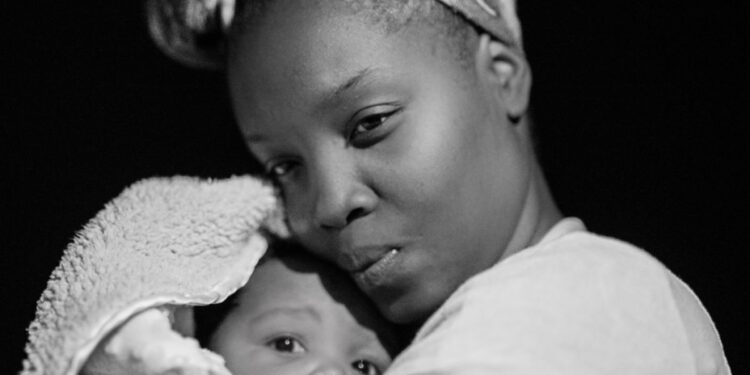To address ongoing racial disparities affecting Black mothers, Black Maternal Health Week was established in 2022. Source: Andrae Ricketts/Unsplash
May 06, 2024 Story by:Editor
Perinatal mental illness, encompassing conditions like postpartum depression and psychosis, affects over a quarter (27%) of new and expectant mothers in England. Analysis by The Guardian of NHS data reveals that black mothers are more than twice as likely to be hospitalized for these conditions compared to their white counterparts.
One contributing factor is the overall higher incidence of mental illness among black individuals. In England, black people are over four times more likely to be detained under the Mental Health Act and more than ten times more likely to be placed under a community treatment order.
Dr. Lade Smith, President of the Royal College of Psychiatrists, attributes this to factors such as “poverty, housing insecurity and discrimination” which elevate the risk of all mental disorders. She explains, “If you’re black, you’re at a higher risk of being socially disadvantaged and this means you’re also more likely to have a mental illness.”
Sandra Igwe, founder of the Motherhood Group, an organization that supports black maternal health, highlights the impact of mental health stigmas and racism. The Motherhood Group offers support groups, workshops, and cultural competency training for NHS trusts focused on black maternal healthcare. Igwe notes, “Many of the mothers we work with have shared how they often feel unseen, unheard and misunderstood by healthcare providers.” She emphasizes the need to address cultural stigmas around mental health and the compounded stress from systemic racism, which exacerbates the challenges of motherhood. “We need to normalize talking about maternal mental health and seeking help. Black mothers should feel empowered and supported, not ashamed and alone.” Source: The Guardian
Dr. Katie Marwick, a senior clinical research fellow at the University of Edinburgh and honorary consultant psychiatrist with NHS Lothian, whose research focuses on perinatal mental illness, states that the higher rate of admissions among black women postpartum is influenced by stigma and less frequent use of community perinatal services. This results in black women presenting at crisis points. “It is well established that psychotic disorders are more common in people who have migrated into Europe, or their children, in particular black people,” Marwick explains. She suggests that this increased risk is linked to the challenges of migration, such as language barriers and social disadvantage.
Dr. Nicole Votruba, a senior research fellow in the Nuffield Department of Women’s and Reproductive Health, highlights persistent “stark disparities” in access to perinatal mental healthcare for women from minority ethnic groups in the UK. Socioeconomic factors and stigma are significant barriers. “Stigma is one major barrier, meaning that women may not be able to seek or receive the support they need, or not in the ways they need it,” Votruba says. This fear of appearing incapable as a mother, coupled with socioeconomic inequalities and cultural and language barriers, perpetuates the mental healthcare gap.
Votruba points to the women’s health strategy for England, which emphasizes the need to address these inequalities. She advocates for a deeper understanding of the journey from the onset of mental health issues to hospital admission and calls for the development of culturally sensitive community services to support women early and prevent severe perinatal mental illness.
















